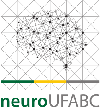Banca de DEFESA: BRUNA VERZILI GALLO
Uma banca de DEFESA de MESTRADO foi cadastrada pelo programa.STUDENT : BRUNA VERZILI GALLO
DATE: 18/12/2023
TIME: 14:00
LOCAL: https://conferenciaweb.rnp.br/sala/ruth-2
TITLE:
THE INFLUENCE OF SOCIAL ISOLATION ON THE COGNITION, EMOTION AND MOTRICITY OF HEALTHY ELDERLY WOMEN: A COMPARATIVE STUDY
PAGES: 90
BIG AREA: Ciências Humanas
AREA: Psicologia
SUMMARY:
Abstract: Brazil is currently experiencing a rapid aging of its population, emphasizing the significance of understanding the health of the elderly. Research highlights that social activities are crucial for maintaining the emotional, cognitive, and motor well-being of the elderly. The COVID-19 pandemic has exacerbated challenges related to the isolation of older individuals, particularly women, due to social distancing policies. This study examined the effects of isolation on elderly women (60-70 years old) concerning cognitive, emotional, and motor functions, comparing those socially isolated with those engaged in social activities. Methods: The sample comprised 39 healthy elderly women, divided into an isolation group (virtual data collection) (n=22) and a group engaged in in-person activities (in-person data collection) (n=17). Cognitive tests (Frontal Assessment Battery, Mini-Mental State Examination, Semantic Verbal Fluency Test, Trails A and B Test, and Temporal Bisection Task), motor tests (upper and lower limb strength resistance and Modified Baecke Questionnaire for the Elderly), and emotional aspects (DASS-21 and WHOQOL) were administered. Data analysis included descriptive statistics, Mann-Whitney U test, and Spearman or Pearson correlations, with a significance level of <0.05, using Jamovi and Statistica 10.0 software. Results: Significant di fferences were observed in anxiety and depression symptoms, quality of life, upper and lower limb strength resistance, physical activity level, temporal bisection task, Trails A test, performance in the Frontal Assessment Battery, and Mini-Mental State Examination. However, no differences between groups were found in semantic verbal fluency, Trails B test, or stress. Conclusion: The socially isolated elderly group exhibited poorer cognitive performance compared to the socially engaged group, particularly in executive function, operational memory, impulse control, time perception, and fine motor coordination. This is presumably attributed to increased symptoms of anxiety and depression and reduced physical activity levels in the isolated group. Nevertheless, further controlled and randomized studies are necessary to elucidate the causal effects of isolation on cognitive, emotional, and motor abilities.
COMMITTEE MEMBERS:
Presidente - Interno ao Programa - 1762416 - RUTH FERREIRA GALDUROZ
Membro Titular - Examinador(a) Externo à Instituição - FENG YU HUA - UNB
Membro Titular - Examinador(a) Externo à Instituição - ELISA HARUMI KOZASA - InCe
Membro Suplente - Examinador(a) Interno ao Programa - 1766041 - MARCELO BUSSOTTI REYES
Membro Suplente - Examinador(a) Interno ao Programa - 1653406 - ABRAHAO FONTES BAPTISTA
Membro Suplente - Examinador(a) Externo à Instituição - DANILLA ICASSATTI CORAZZA




